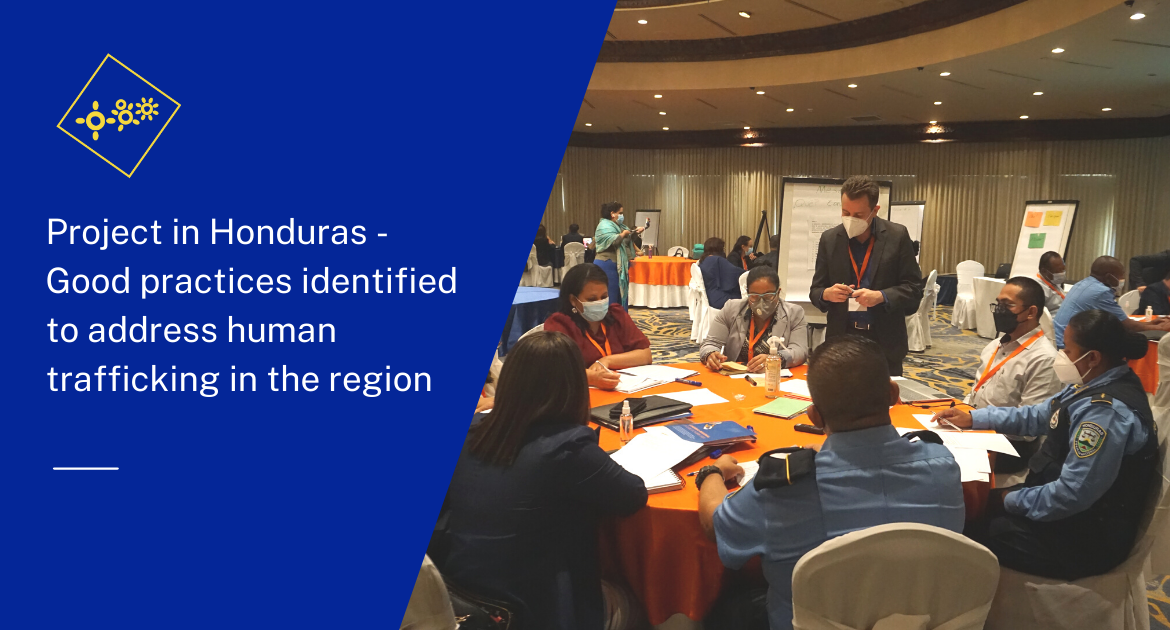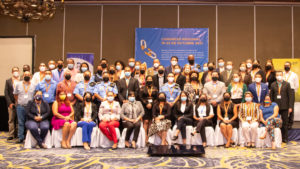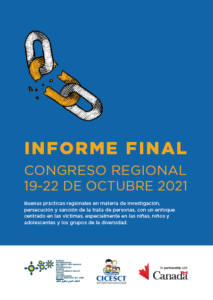
A regional event organised by the IBCR and CICESCT (partner of the IBCR anti-trafficking project in Honduras) took place last October in Tegucigalpa, Honduras. Key actors gathered for four days in a unique space of exchange and joint learning to strengthen regional coordination and capacity to fight human trafficking.
 140 professionals from the countries of the region – Belize, Costa Rica, Dominican Republic, El Salvador, Guatemala, Honduras, Mexico, Nicaragua and Panama – participated in the congress.
140 professionals from the countries of the region – Belize, Costa Rica, Dominican Republic, El Salvador, Guatemala, Honduras, Mexico, Nicaragua and Panama – participated in the congress.
Key actors from the key sectors of police, justice, or institutional and state actors, half of them were able to join the congress face-to-face, while another half were able to join online through a live broadcast.
The congress consisted of a mix of lectures and workshops:
-
The lectures, given by experts, provided a reminder of the context as well as the challenges and issues, and good practices already in place. Topics covered included: the state of play of trafficking in the region, challenges and good practices in the police and judicial sectors, how to focus on the care of victims of trafficking, in particular women and girls and populations most at risk, what coordination is needed between institutions in order to fight the crime globally.
- The workshops focused on the identification of good practices to be implemented or improved in order to reduce the crime of trafficking and better protect the victims. Six working groups were formed, composed of various experts from different countries, and followed a methodology of identifying good practices and practical recommendations for their implementation.
A report based on the recommendations is now available and widely disseminated in order to spread the best practices beyond those present at the congress.
The good practices identified are the following:
- Ensure Standard Operating Procedures (SOPs) in the region.
- Strengthen and update inter-institutional handling protocols for the identification of victims of human trafficking, so that victims can be adequately protected and feel safe when filing a complaint, including humane and comprehensive treatment by all officials and institutions involved.
- Improve and maintain multidisciplinary teams for a comprehensive approach to reduce re-victimisation in cases of human trafficking.
- Obtain justice and reparation for victims, even if some of them choose not to participate in the criminal procedure.
- Have immediate response teams (IRTs) and specialised teams to ensure the care of the victim before, during and after.
A second regional workshop is planned for this year and will continue this work of collaboration and reinforcement of the links between the different key actors in the region.
 Subscribe to our monthly newsletter to follow our news!
Subscribe to our monthly newsletter to follow our news!






